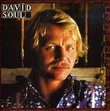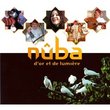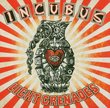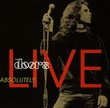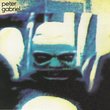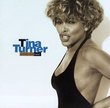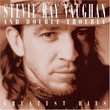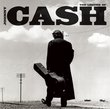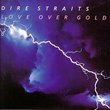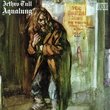| All Artists: George Carlin Title: Class Clown Members Wishing: 7 Total Copies: 0 Label: Laugh.Com Original Release Date: 1/1/1972 Re-Release Date: 8/18/2009 Genres: Special Interest, Pop Style: Comedy & Spoken Word Number of Discs: 1 SwapaCD Credits: 1 UPCs: 075679292322, 801291102721 |
Search - George Carlin :: Class Clown
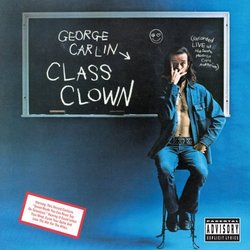 | George Carlin Class Clown Genres: Special Interest, Pop
|
Larger Image |
CD DetailsSimilar CDs
Similarly Requested CDs
|
CD ReviewsA Carlin Classic Phrodoe | Another day older and deeper in debt... | 07/24/2004 (5 out of 5 stars) "Anyone who remembers childhood with reasonable clarity (there are a few of us) remembers this: they taught you stuff in school, but you didn't always learn anything...especially if you had guys like George Carlin in your class. Carlin, who attended Corpus Christi School in New York, was a confirmed Class Clown, and he remembers those days in an album full of sidesplitting humor. Caveat Number One: this is not the modern Carlin I'm talking about, the crotchety curmudgeon who is still very funny, but relies overmuch on four-letter words, cynicism, and pessimism. This is Carlin at the peak of his transformation from family-friendly Ed Sullivan entertainer to counterculture comic genius. His style at the time (the early to mid 1970's) was gentler, sillier; he was less likely to sneer, and more willing to smile, on these earlier releases. He delivered all the trenchant social observations and criticisms that show up in his later work--but here his humor seems more chiding, more cajoling, and less misanthropic. Instead of shouting at you, he speaks to you. The difference between the younger Carlin and the one we know today is more remarkable the more you think about it. Class Clown is that remarkable man's best album. It weaves together fond childhood reminiscences of, and serious questions about, his Catholic upbringing; he combines them with sharp-eyed social commentary about Vietnam, pollution and Lenny Bruce-like observations on American standards. The Bruce influence comes through strongest, perhaps not surprisingly, when Carlin quotes him in "Values (How Much Is That Dog Crap In The Window?)." He goes off on a very Lenny-like reminiscence about growing up seeing the fake dog poop in the windows of novelty stores (and I just lost everyone under the age of 30 with that sentence); he wonders how one goes about buying it ("I'd like to see something in a dog crap, please!"), and speculates that there might be collectors of different breeds ("Do you have any Saint Bernard?" "Yes, but there's no room in the window for that...") Strange stuff, to be sure--and that really defines Carlin at this stage in his career. He was willing to be as weird as possible in pursuit of laughter. He was also more willing to draw on real life (which he astutely recognized as generally being stranger than anything he could think up) than he is today. And both of those attributes--the willingness to find humor in his life, and the willingness to be as goofy as possible while doing it--make Class Clown a comedy milestone. A good example is one of my favorite moments, also one of the biggest laughs. Carlin, riffing on the weird noises class clowns make, talks about "popping the cheek," does it once or twice to illustrate-and then takes the joke to its goofy extreme by inviting the entire audience to do it too. The resulting noise is delightful--doubly so when the audience, hearing it, dissolves into hysterical laughter. That's something I really miss with Carlin, by the way. He used to invite his audiences along for the ride, daring them to be part of the act instead of just passive observers, and let them know it was all right to laugh at themselves as well as his jokes. That kind of gentle good humor is largely gone from his act, and I think it's our loss. There's a lot of that gentle humor on Class Clown, most notably in his monologues about the progressive Irish Catholic school he attended. In the latter part of his career, Carlin has become somewhat rabid and one-sided about organized religion (and I have a definite opinion about his attitude, but they don't belong in this review so I'll spare you). On this album, though, Carlin is more willing to poke fun at his former religion, rather than make fun of it and hold it up to unfair ridicule. His harshest joke--"I used to be Irish Catholic...now I'm an American; you know, you grow..."--is the springboard for a series of fond, funny reminiscences about growing up Catholic. He recalls the environs, the school, and most of all the priests. It's obvious he has many affectionate memories of them from the way he talks about them, and it's equally apparent he bears them no ill will (unlike the modern Carlin, who seems to harbor ill will for everyone but himself). His funniest bit here is "Heavy Mystery Time," in which an Irish Catholic boy concocts an increasingly outrageous set of circumstances, in order to remove the sinfulness from a sin. There's nothing mean-spirited about it, nothing done with the intention of hurting anybody--it's just one man's delightful recollection of how boys behave, and how adults react to them. That's really the heart of Class Clown--it's about the antic joy of childhood in a gentler time. Carlin's astute, wickedly funny observations about people and events are informed throughout the album by that gentleness, that antic, not-quite-lunatic pleasure. That aspect of George Carlin the performer is all but gone today, a reflection perhaps of the gentleness that is gone from our society-and more's the pity, as it's something I wish he (and we) had retained. But if you want to see what the man used to be like when he was an unadulterated genius instead of just pretty effin' funny, then listen to this album. I guarantee you'll be pleasantly surprised. (Caveat Number Two: Carlin swore less then than he does now, but there is a lot of adult humor and language here--especially the final track, the legendary "Seven Words You Can Never Say On Television" routine. The difference between then and now is that Carlin used to use swear words to examine our values and attitudes towards language; today he just uses swear words. Decide for yourself which is more appropriate.) " First Class Thomas Magnum | NJ, USA | 06/20/2001 (5 out of 5 stars) "Class Clown is the album that turned George Carlin from a B-level sitcom actor into a stand-up legend. Mr. Carlin had originally done stand-up as part of a comedy duo, but moved into acting. He landed roles in TV shows like That Girl, but the stand-up arena was his true calling. Class Clown was cutting edge at the time mixing politics, religion, drugs and all the social issues of the late 60's, early 70's into a big pot. The album is most famous for the "Seven Words You Can't Say On Television" bit. That broke alot of ground with its vulgarity, the same type of routine that got Lenny Bruce throw in jail. "Seven Words" is funny, but equally as funny are bits like "Class Clown", "I Used To Be An Irish Catholic" and "Heavy Mysteries". Some of the material is dated, but Mr. Carlin is so funny, you laugh even if the events are outdated." Carlin's greatest Phrodoe | 02/15/2003 (5 out of 5 stars) "This album has bits that will have you laughing so hard you'll bust a gut. It's classic Carlin with his classic routines such as Seven Words You Can Never Say on Television and I Used to be Irish Cathholic. A good thing about Carlin is he did some research for his bits on this album."
|

 Track Listings (9) - Disc #1
Track Listings (9) - Disc #1
